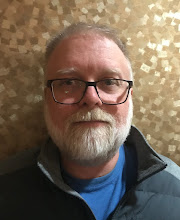Apparently BYU is gearing up to offer a new master of fine arts (MFA) degree in creative writing. I’m very curious to see how BYU’s MFA is different from its M.A. with creative writing emphasis, which I completed back in 1998.
I really enjoyed my BYU experience, but not so much the actual creative writing track. For one thing, at that time they lumped all kinds of creative writers into one workshop, which made only a little more sense than lumping those learning French, Spanish, and Chinese into one class.
For another, the theory courses were very ambiguous and ethereal and academic and didn’t provide any practical training for a creative writer. The emphasis seemed to be more on preparing me for a Ph.D. program, since the M.A. is not considered a terminal degree. I did like some of my two workshop experiences, but in one the professor never said anything, so it seemed like students teaching students, and in the other I had to complete it by mail with the instructor, as I came down with Hodgkin's disease and had to file an incomplete. My favorite class of the whole degree was the Mormon literature reading class I took from Eugene England.
My BYU M.A. gave me some great things. It turned me on to Mormon literature, the Association for Mormon Letters, etc. which have continued as abiding interests in my life. And it was through the M.A. program that I got an (extremely boring) summer internship in the LDS Church’s curriculum dept. which then directly led to a less-boring full-time stint at the Ensign magazine and a subsequent reasonably well paid career in corporate marketing communications. However, as far as preparing me to become an actual published creative writer, the BYU program did less for me than two years of participating in a good writer’s group and studying books and magazines put out by the likes of Writers Digest would have done.
While I can see benefits to M.A. and MFA programs, I come down on the side of thinking it’s too often all just a big pipe dream for the students. It’s a lot like the multilevel marketing industry in which I work: everyone wants to launch their own successful home-based biz and make money, but fewer than 5% actually make it. If a program in law or dentistry had those job-placement odds, it would fail.
If someone has the time and the money to spend on an MFA without needing to earn a living afterward, I think it's potentially a fair-to-good investment in personal development and could lead to some satisfying literary experiences later, for those who stick with the writing discipline beyond school or luck out with a sustainable teaching job. But for the majority of us who need a real career, I think MFA programs should be much more realistic and should include much more practical emphasis on carving out a workable writing life.
In fact, I tend to think that most creative-writing degrees should be a tag-on minor to some real vocational degree in a discipline with reasonable odds for providing a lifetime remunerative career. For most of us, an MFA is a luxury we can't afford, but I don't think many students realize that until later, when the impossibility of making a living as a creative writer really sinks in.
Here's a very interesting article from a recent New Yorker on this whole topic.
Friday, July 10, 2009
Subscribe to:
Post Comments (Atom)





3 comments:
I learned more from writing my just completed novel than I did from all my creative college writing classes combined. If someone wants to learn how to be a writer, they should sit down and start writing whatever it is they want to write.
Out of all my college writing friends, I'm the only one that has a book published. It has nothing to do with the fact that I'm a better writer then them (most were more talented than I) but that I'm the only one that seriously worked on my writing after graduating.
If someone wants to be a writer, they need to write their @$$ off!
Funny, I just come upon this entry the very day I decide to investigate MFAs in Creative Writing. I'll not looking to have it help my career, but more for my personal edification, and I never pursued study beyond my BA, so there's pride to be considered, too. My deal is, I'm trying to find a program that will let me do it online, but from an institution somewhat higher than DeVry. Any ideas would be welcome.
Many institutions limit access to their online information. Making this information available will be an asset to all.
Post a Comment